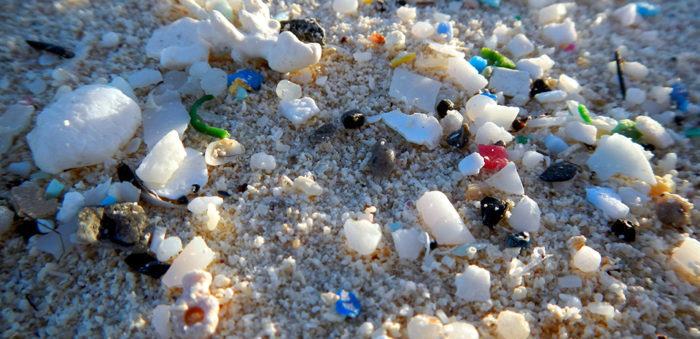On the occasion of World Oceans Day on 8 June, AMSA reminded that marine litter presents a huge problem in our oceans. Plastic pollution results in harmful effects on marine life and biodiversity, as well as negative impacts on human health, tourism and fisheries.
AMSA is engaged in the ongoing work of the International Maritime Organization (IMO) to reduce marine pollution. Through the IMO, Australia and other countries have agreed on a strategy to address marine plastic litter. The strategy sets out ways to further reduce shipping’s contribution to marine plastic litter and how to improve the effectiveness of port reception facilities.
How MARPOL addresses garbage management
There are some important rules for disposing of garbage that all vessel owners and operators must follow under the International Convention for the Prevention of Pollution from Ships (MARPOL). MARPOL is implemented though Australian legislation and Marine Order 95—Marine pollution prevention—garbage.
- Vessels over 12 metres must display a garbage sign or ‘placard’ that clearly notifies crew and passengers of laws associated with the discharge of garbage. Placards should be displayed on the vessel where they can be easily seen by crew and passengers.
- Vessels of 100 gross tonnage and above or certified to carry 15 or more people must have a garbage management plan that includes written procedures for minimising, collecting, storing, processing and disposing of garbage.
- Vessels that are 400 gross tonnage and above and every ship certified to carry 15 or more people on international voyages must also maintain a garbage record book.
How to create garbage management plan
Before you write your garbage management plan, there are a few things you need to consider:
- reducing generated garbage
- reusing and recycling where possible
- on board processing options
- use of shore-based facilities for disposal.
Think about how you can minimise domestic garbage through provisioning practices:
- While bulk-packaged consumable items may create less garbage, consider the shelf-life once a container has been opened to avoid creating garbage.
- Reusable packaging and containers can reduce waste.
- Where possible, use washable items such as crockery and avoiding disposal cups, utensils, plates, towels, rags and other convenience items.
- Consider using supplies that come in reusable or recyclable packaging.
- When preparing your garbage management plan, follow the IMO Guidelines for the development of garbage management plans to make sure your plan will pass inspection.
Make sure you include sections on:
- designated person or persons in charge of carrying out the plan
- procedures for collecting garbage
- procedures for processing garbage
- procedures for storing garbage
- procedures for disposing of garbage.
The information in your plan must be suited to your vessel and take into account its size, equipment on board and the number of persons on board. You must include all sections listed above in your plan.
You don’t need our approval to certify your plan, but you will be subject to survey and inspection. When your vessel is surveyed or inspected, your garbage management plan will be checked.
…AMSA informed
Key consideration for Garbage Record Book
The Record of Garbage Discharges are divided into Part I and Part II. Amendments have also been made to align the terminology in the Format of the Garbage Record Book and the Record of Garbage Discharges.
Part I of the Record of Garbage Discharges is for the use of all ships. Part II is only required for ships that carry solid bulk cargoes. Part I and Part II are produced as two separate record books (similar to Part I and Part II of the Oil Record Book, required under MARPOL Annex I).
The following categories of garbage discharge will need are recorded under Part I: Plastics, Food wastes, Domestic wastes, Cooking oil, Incinerator ashes, Operational wastes, Animal carcass(es), Fishing gear, E-waste .
The following categories of garbage discharge are be recorded under Part II: Cargo residues (non-Harmful to the Marine Environment) and Cargo residues (Harmful to the Marine Environment).
Furthermore, garbage must be stored safely on board and disposed of, or recycled, on shore. In that regard, AMSA encourages operators to contact their local port authority, marina, boat harbour, port or terminal to find out what waste collection and disposal facilities are available.
Also, AMSA encourages operators to report any illegal dumping of rubbish or waste products such as oil as follows:
If you see someone dumping rubbish there is some information you can collect to help our investigation of the incident. Useful information includes:
- the name of the vessel responsible
- the time, date and location of the incident (distance from land, GPS coordinates)
- details of how much and what type of discharge, and
- other witnesses or vessels in the vicinity.
- If possible, take photographs or video images of the pollution, the vessel or person involved.
Our oceans are a precious source of food, transport, and enjoyment. Clean, safe oceans are vital to our livelihoods, our recreation and to protect marine flora and fauna
…AMSA highlighted.

































































